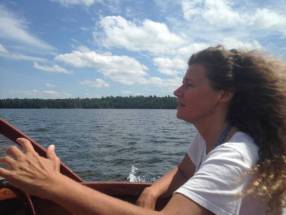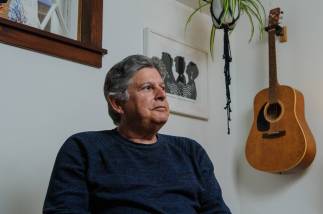Angling for attention English professor’s new memoir an exploration of time, family and fishing
Read this article for free:
or
Already have an account? Log in here »
To continue reading, please subscribe:
Monthly Digital Subscription
$0 for the first 4 weeks*
- Enjoy unlimited reading on winnipegfreepress.com
- Read the E-Edition, our digital replica newspaper
- Access News Break, our award-winning app
- Play interactive puzzles
*No charge for 4 weeks then price increases to the regular rate of $19.00 plus GST every four weeks. Offer available to new and qualified returning subscribers only. Cancel any time.
Monthly Digital Subscription
$4.75/week*
- Enjoy unlimited reading on winnipegfreepress.com
- Read the E-Edition, our digital replica newspaper
- Access News Break, our award-winning app
- Play interactive puzzles
*Billed as $19 plus GST every four weeks. Cancel any time.
To continue reading, please subscribe:
Add Free Press access to your Brandon Sun subscription for only an additional
$1 for the first 4 weeks*
*Your next subscription payment will increase by $1.00 and you will be charged $16.99 plus GST for four weeks. After four weeks, your payment will increase to $23.99 plus GST every four weeks.
Read unlimited articles for free today:
or
Already have an account? Log in here »
Hey there, time traveller!
This article was published 07/06/2022 (1280 days ago), so information in it may no longer be current.
In the vast ocean of published memoirs out there, Neil Besner’s might not be the weightiest catch of the day, but it’s certainly a keeper.
Book launch preview
Fishing With Tardelli: A Memoir of Family in Time Lost
By Neil Besner (ECW Press, 152 pages, $22)
In conversation with Warren Cariou and Dennis Cooley
● McNally Robinson Booksellers, Grant Park
● Friday, 7 p.m., free
Fishing With Tardelli: A Memoir of Family in Time Lost, published in May by ECW Press, is Besner’s brief rumination on time, family and memory. And while the 72-year-old Besner has written plenty about other authors during his decades teaching in the University of Winnipeg’s English department and his years as a freelance book reviewer for the Free Press, this is the first time he has tackled his own story.
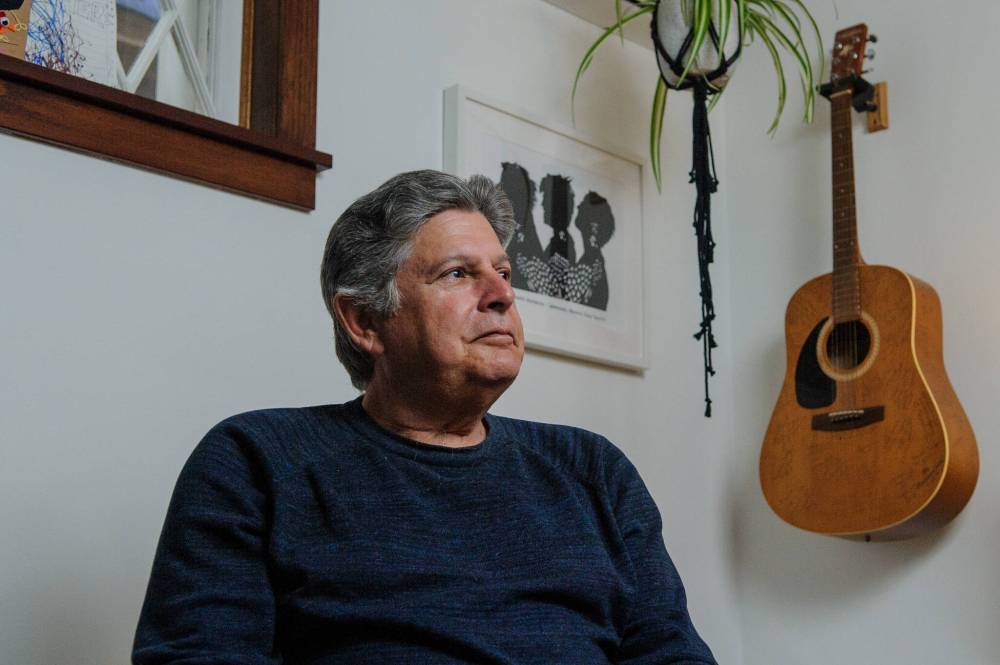
“I had written before this — I’ve written songs, a few poems, a short story,” Besner explains while on a recent visit to Winnipeg from Lake of the Woods, where he spends half the year (he lives in Toronto the rest of the time). “I love writing. I had been a closet writer for 60 years… but my job was all-consuming.”
He’ll launch Fishing with Tardelli on Friday at 7 p.m. at McNally Robinson Booksellers’ Grant Park location, where he’ll be joined by Winnipeg poet Dennis Cooley and University of Manitoba professor and writer Warren Cariou. The event will also be streamed to McNally Robinson’s YouTube page.
Besner began thinking about telling his own story in 2014, after reading Joe Fiorito’s memoir, The Closer We Are to Dying, about the death of the author’s father. Once Besner retired in 2017, he was able to turn his attention to writing and revising his own memoir, a two-and-a-half-year process.
“I thought, OK, now’s the time. It’s now or never,” he says.
The bulk of Fishing With Tardelli flows back and forth throughout Besner’s early years, from early childhood until the age of 20, and the parental figures in his life — namely his mother Judith, father Mortimer, stepfather Walter and the titular Tardelli, on whose boat he learned how to fish (among other life lessons).
Most of Besner’s early years were split between Montreal and Brazil, where he fished with Tardelli, coming of age on and around the bay in Rio de Janiero. (Besner’s own boat at Lake of the Woods is named Tardelli.)
The genealogical aspect of Besner’s life is a bit complicated. In Montreal, his parents Mortimer and Judith were friendly with another couple, Walter and (another) Judith. Besner’s parents split when he was around six, and his mother Judith took up with the man who would become his stepfather — Walter. Mortimer stayed in Montreal, while Walter and Besner’s mother (known mainly throughout the book as Señor Valter and Dona Judite, respectively) moved to Rio de Janiero. Walter, the last surviving subject, died in Rio in January 2022 at age 99 after contracting COVID-19.
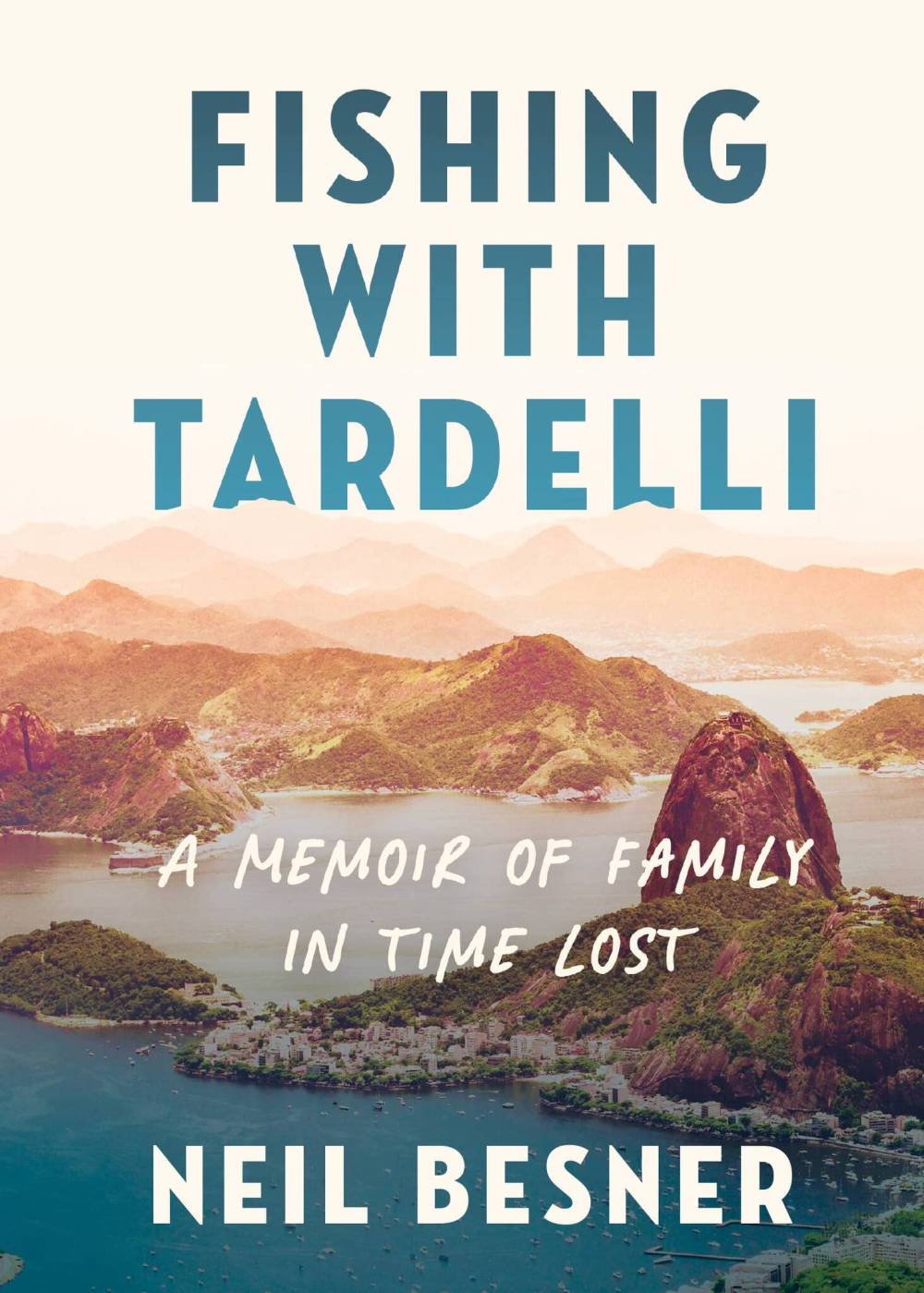
The structure of Fishing With Tardelli proved to be one of the most challenging aspects for Besner to figure out.
“There were two things I was trying to do: first of all, I wanted to write about time and memory. I didn’t know if I knew how to do that properly,” he says. “The other part of it is that I wanted to write about family. I wanted to write about the intimacy, or not, of family.”
He ended up splitting the book into four primary sections — one each named after his father, mother, stepfather and the titular Tardelli.
“I was walking down Yonge Street (in Toronto) one day. And it came to me that what I needed to do was just title the sections by the names of the parents. Once I had that structure in mind, then I knew that I could go backwards and forwards,” he explains.
And while the writing style of Fishing With Tardelli may read more like literary fiction than a traditional memoir, Besner stresses that nothing is made up — everything is the way he remembers it happening.
“In my humble view, memory is all we have — it’s very, very important to get things right, to tell the truth,” he says. “The events in the book are the things I remember. They’re small-t true.”
The back-and-forth nature of the book also serves to highlight Besner’s thoughts on time, which have shifted as he has aged.
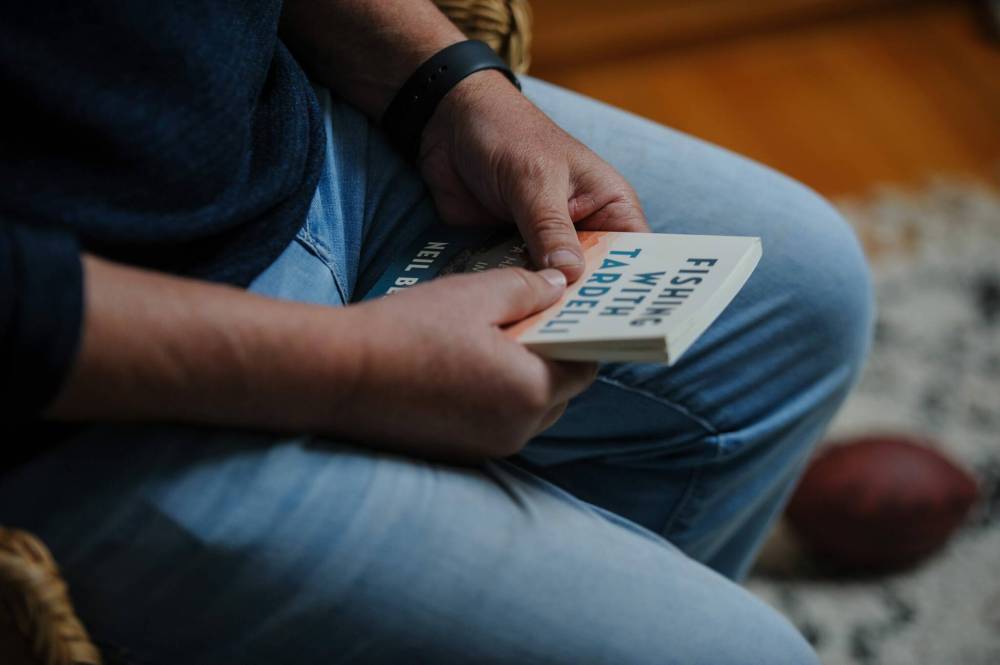
“It’s a flash, it’s instantaneous. I was trying to make the prose do that, too,” he says. “We sequence time and dates, and they’re very important to me… but those are just markers. Time itself? I’ve given up trying to try to understand it. The only thing I can say is to try and live in the moment, as best you can.”
Perhaps fitting, given the complicated nature of his family relationships and the cyclical nature of his memoir, the last chapter of Fishing With Tardelli tells the story of how Besner met his wife Gail, whom he first dated in his early 20s and eventually married — just five years ago.
“We met at McGill (University in Montreal) in ’71. We were together for a year; I broke up with her in ’72, as she’s fond of reminding me,” he recalls, laughing. “We knew hide nor hair of each other for 45 years. And then suddenly, one day I came across her on LinkedIn. And then it was three months of email messages back and forth. She was living in Toronto.”
The two reconnected in 2016 and were married in 2017. They continue to visit Brazil regularly, with their annual fishing trip on the Amazon River slated to resume in December.
Those who have taken English classes with Besner at the U of W may be disappointed to note the book contains almost no references to his time in Winnipeg, owing mainly to the time period he recalls in Fishing With Tardelli.
“I spent 30 years here, way longer than anywhere else by far. And I still think of Winnipeg as home; it always will be. My kids are both here. My grandkids are all here,” he says.
The draw of memoir writing has Besner considering writing more about his own life, including stints working on a farm in Idaho and, naturally, his Winnipeg years.
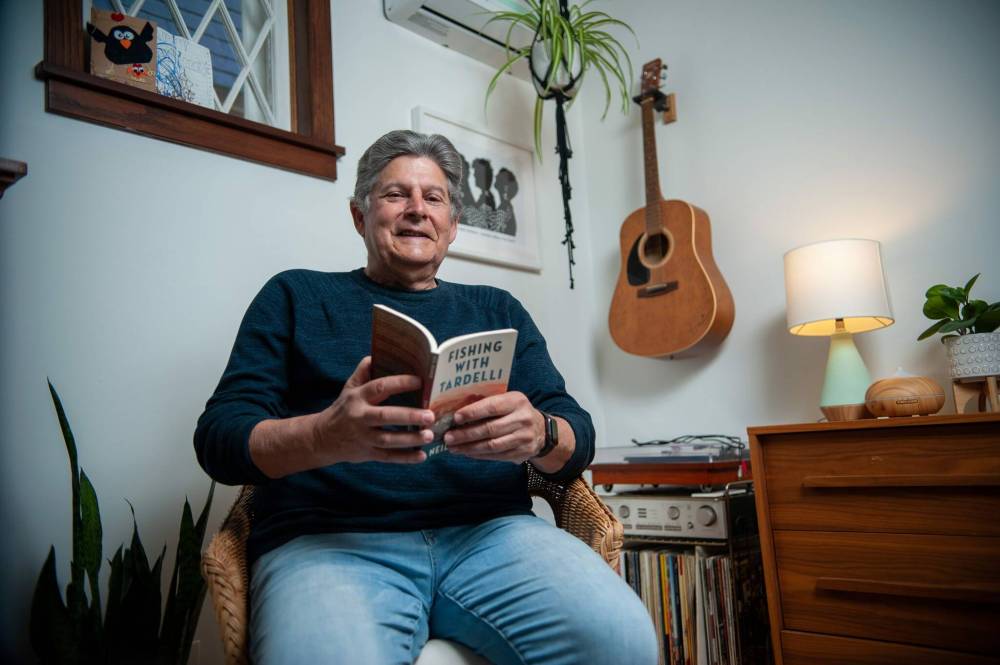
Once Fishing With Tardelli was completed, Besner sent copies to his (very) extended family members and waited anxiously to hear what they’d say.
“The person that I’m hardest on in the book, arguably, is my brother Derek. He read it in an afternoon; he emailed me and said, ‘I loved it. I love this book.’ And he wrote to me again and again about why he liked it,” Besner says.
“I’m very close to him, but we hate each other — it’s one of those kinds of relationships. He said, ‘You wrote this with love… if our parents were alive, they would take great comfort in this book.’”
books@freepress.mb.ca

Our newsroom depends on a growing audience of readers to power our journalism. If you are not a paid reader, please consider becoming a subscriber.
Our newsroom depends on its audience of readers to power our journalism. Thank you for your support.

